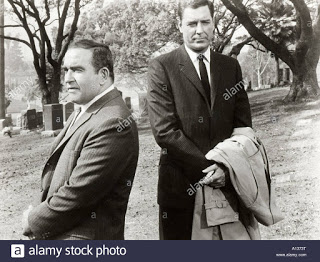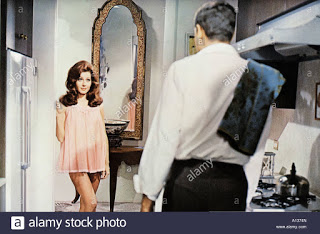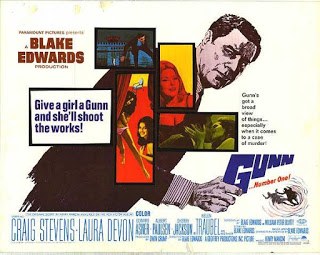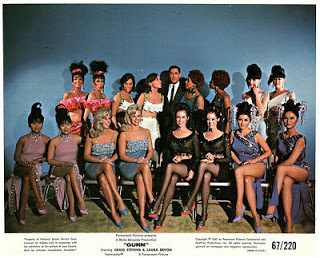Director: Blake Edwards
Year: 1967
Rating: 7.0
The Peter Gunn TV series ran for three years and 114 episodes from 1958 -
1960. It was at the time the epitome of conventional cool with Gunn's perfectly
tailored suits, his hair never out of place, looking like he would not sweat
in a sauna, the lovely singer girlfriend, his off-beat friends and informers,
his hangouts - all set to a light cool jazz soundtrack. It is a show that
still holds up remarkably well 60 years later. It was 30-quick-minutes of
cocktails and hard knocks all in glorious black and white. Every man wanted
a bit of Peter Gunn in themselves.

Blake Edwards who had created the Peter Gunn series as well as directing
a number of episodes decided to bring Peter Gunn to the big screen seven
years after the end of the TV show - writing the script along with none other
than William Peter Blatty of Exorcist fame. Craig Stevens is back as Peter
Gunn but the other main characters of the TV show were replaced - Herschel
Bernardi as Lt. Jacoby by Ed Asner; Lola Albright as Gunn's squeeze who he
still hasn't made an honest woman of with Laura Devon and Hope Emerson (who
died during the show) as Mother with Helen Traubel. But they still have the
famous Peter Gunn theme from Henry Mancini who composes the other music as
well.

The film is quite enjoyable though it tries to hedge its straight arrow origins
with a little bit of 1960's grooviness. A mob boss is assassinated but he
once saved Gunn's life and so Gunn compelled to investigate. This takes him
into a bordello where all the hostesses are twins, a racket ball court where
the game is to hit Gunn, a pot-smoking hippy bar and a room of mirrors ala
The Lady from Shanghai. It is the type of film where Gunn comes home to find
a stunning girl waiting for him naked under the covers - and ends up having
to kill a guy which breaks the mood. Well-paced after some early boring smooching.
Peter Gunn has lost none of his sophisticated suave cool but he is a bit
of an antiquity in a period when the times they were a changing.




